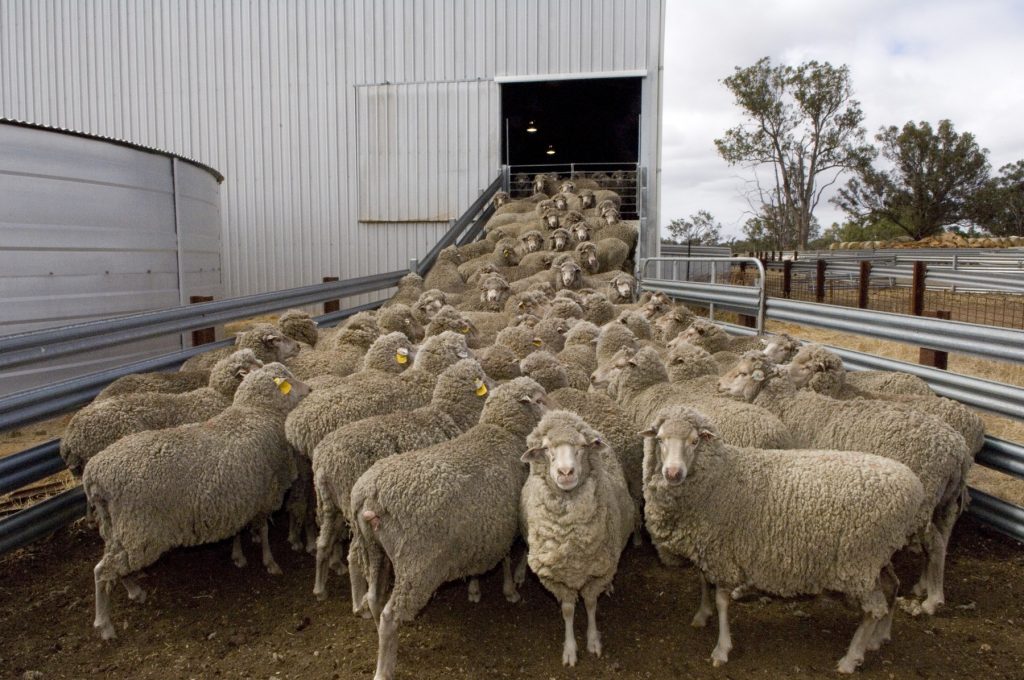
Merino ewes in full wool ready for shearing.
VICTORIAN sheep producers have been urged to have a fallback plan for flystrike and seed contamination this Spring to counter the impact of the shearer shortage and COVID-19 pandemic.
Agriculture Victoria sheep specialist Lyndon Kubeil said recent warm and wet weather was conducive to flystrike and seed contamination issues in sheep.
He said while timely shearing and crutching is commonly used to manage these, expected delays in securing shearers this year would require producers to have a solid “Plan B”.
Flystrike costs the Australian sheep industry about $173 million annually, as a result of lost production, treatment costs and deaths.
Mr Kubeil encouraged sheep producers to consider other management strategies such as chemical options, but warned that withholding periods that apply to those chemicals would need to be taken into consideration.
“Some sheep producers may have alternative crutching options such as the use of handlers or crutching trailers,” he said.
Agriculture Victoria said alternate grazing strategies to manage potential grass seed risks was also an option for producers unable to secure shearing contractors at the optimal time.
Forward planning is more critical under COVID
Mr Kubeil said farmers forward plan under normal circumstances, but this had become more critical this year, especially in terms of managing shearing and ensuring farm businesses are COVIDSafe.
Agriculture Victoria said its BESTWOOL/BESTLAMB network and livestock extension and animal health team continued to support the state’s sheep graziers to be proactive, flexible and highly organised to ensure this year’s wool clip goes ahead, factoring in seasonal animal health issues and the ongoing impacts of the pandemic.
“It is important for farmers to understand COVID-19 requirements and their obligations as employers,” Mr Kubeil said.
Agriculture Victoria said farmers, shearers and farm workers can continue to work as authorised workers during COVID-19 lockdown restrictions; however, a permit is required and agricultural workers must be able to show evidence of their vaccination to their employer in order to continue working outside their home.
Authorised workers need to have received their first dose of the COVID-19 vaccine by Friday 15 October, or have a booking to receive their first dose by Friday 22 October, in order to continue working on-site. They will need to be fully vaccinated by Friday 26 November.
For more information on the vaccine requirements and record keeping, visit the Victorian coronavirus website.
Sheep producers are urged to visit coronavirus.vic.gov.au for information about the latest restrictions, permits and travel updates and for information on:
- Vaccination
- Creating a COVIDSafe plan
- Creating workforce bubbles
- Victorian travel permits
- NSW/Victoria border bubble
- COVID-19 business support
Source: Agriculture Victoria.

HAVE YOUR SAY